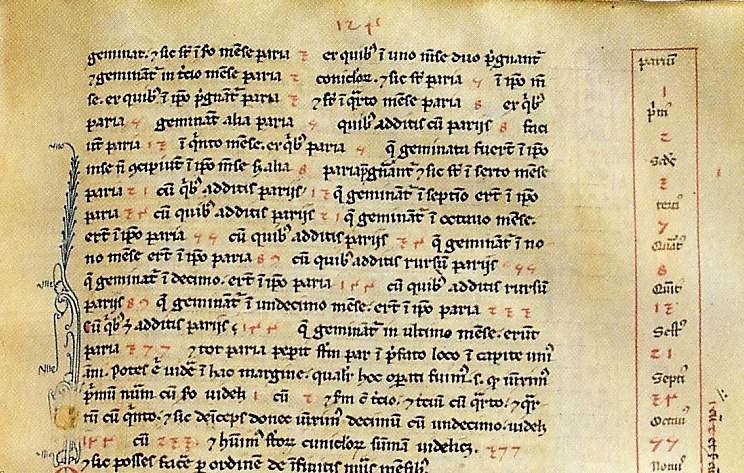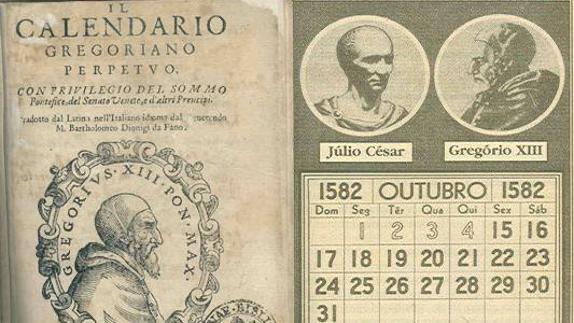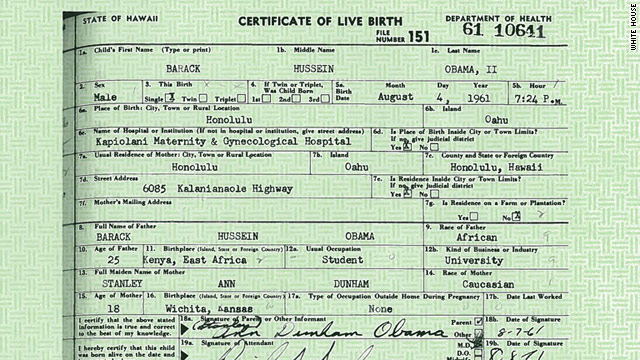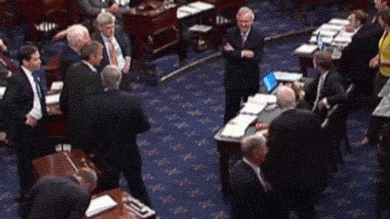
The power of information
My great grandfather was a saddle maker and farmer in Horslunde, on the poor island of Lolland, Denmark. In the 1850’s, his life was likely defined by silence. He quietly worked on saddles in a shed, working with his hands to shape and mold cowhide. He tended to his family’s one horse. Most of his social encounters were with his wife, children, and perhaps the small community church of a few dozen people each Sunday. I’m sure there was drama, and gossip, and some politics, but those likely happened on the scale of weeks and months, as communication traveled slowly, by mouth and paper. His children—my grandfather and his siblings—likely played in the quiet grassy flat fields in the summer, far from anyone. Life was busy and physically demanding, but it was quiet.
My life, in contrast, is noisy. As a professor, my research connects me with people across North and South America, all of Europe, and much of Asia and Australasia. I receive hundreds of emails each day, I see thousands of tweets, I might have a dozen friends and family message me on a dozen different platforms, causing my smart watch to gently vibrate every few minutes. My news aggregator pushes hundreds of stories to me, Facebook and LinkedIn share hundreds of updates from friends, family, and colleagues. The moment I’m bored, I have limitless games, television, movies, podcasts, magazines, comics, and books to choose from. I might spend just as much time using search engines and reading reviews to help decide what information to consume as I do actually consuming it. If my Danish grandparent’s lives were defined by quiet focus, mine is defined by clamorous distraction.
Despite these dramatic differences in the density and role of information in our two lives, information was very much present in both of them. My grandfather’s information was about livestock, weather, and the grain and quality of leather; my information is about knowledge, ideas, and politics. In either of our lives, has information been any more or less important or necessary? My grandfather needed it to sell saddles and I need it to educate and discover. I may have access to more of it, but it’s not obvious that this is better—just different.

What these two stories show is that information was, is, and always will be necessary to human thriving. In fact, some describe humanity as informavores , dependent on finding patterns, predictions, and order in an increasingly entropic, chaotic world 4 4 George A. Miller (1983). Informavores. The Study of Information: Interdisciplinary Messages.
Of course, some information is less necessary and powerful than other information. Much of the internet has little value; in fact, content on the web is increasingly generated by algorithms, which read and recombine existing writing to produce things that appear novel, but in essence are not. Most of the media produced does not change lives, but serves merely to resolve boredom. Our vibrant cities are noisier than ever, but most of that noise has no meaning or value to us. And the news, while more accessible than ever, is increasingly clickbait, with little meaningful journalistic or investigative content.
If it’s not the abundance of information that makes it powerful, what is it?
What is powerful about information?
The power of information comes from how it is situated in powerful contexts. Consider, for example, the SARS-CoV-2 Pfizer vaccine, which is one of many vaccines that will help build and sustain global immunity to the dangerous virus. This is a powerful, innovative vaccine that is fundamentally information: it encodes how to construct the “spike” of SARS-CoV-2 found on the surface of the coronavirus that causes COVID-19. When that information, stored as messenger RNA, is injected into our bodies, our cells read those mRNA instructions, assemble the spike protein, and our immune systems, rich databases of safe and dangerous proteins, detect the spike as a new foreign body, and add it to their database of substances to attack. The next time our immune systems see that spike, they are ready to act and destroy the virus before it replicates and causes COVID-19 symptoms. Information, therefore, keeps us healthy .
There is also power behind the origins of that DNA sequence. In February and March 2020, an international community of American and Chinese researchers worked together to model, describe, and share the structure of the SARS-CoV-2 spike. Their research depended on computers, on DNA sequencers, on the internet for distribution of knowledge, and on the free movement of information across national boundaries in academia. All of these information systems, and the centuries of research on vaccines, DNA, and computing, were necessary for making the vaccine possible in record time. The power of the vaccine, then, isn’t just about an mRNA sequence, but an entire history of discovery, innovation, and institutions that use information to understand nature. Information, therefore, fuels discovery .

Stories of the power of information abound in history 2 2 Joseph Janes (2017). Documents That Changed the Way We Live. Rowman & Littlefield.

Prior to 1592, there was no standard calendar in western civilization, and so it was hard to discuss time. The declaration of Pope Gregory XIII defined months, weeks, years, and days for Europe—and due to the rampant colonialism that followed—for most of the world 5 5 Gordon Moyer (1982). The Gregorian Calendar. Scientific American.

As European colonialism waned and modern democracies emerged, information was a central force in shaping new systems of government. For example, the Declaration of Independence, released on July 4th, 1776, can be thought of simply as a one page letter to the Kingdom of Great Britain, declaring the British colonies as sovereign states. But it was far more than a letter: it led to the Revolutionary War, the decline of power in Great Britain, and the writing of the U.S. Constitution 1 1 Max Edling (2003). A Revolution in Favor of Government: Origin of the U.S. Constitution and the Making of the American State. OUP USA.

Some of these injustices in the United States led to information that changed the course of civil rights. For example, Martin Luther King, Jr’s 1963 speech, I have a dream , conveyed a vision of the United States without racism 7 7 Eric J. Sundquist (2009). King's Dream. Yale University Press.

Throughout this history of human and civil rights, a central challenge has been defining identity. Who is American? How does one prove they were born here? Documents like birth certificates, filled out and signed at the time and place of birth, become powerful media for laying claim to the rights of citizenship. Nowhere was this more apparent than in President Trump’s baseless conspiracy theories of President Obama’s citizenship 6 6 Vincent N. Pham (2015). Our foreign president Barack Obama: The racial logics of birther discourses. Journal of International and Intercultural Communication.

In our 21st century, identity is just one part of the much larger way that we use information to communicate. When we express our views on social media, they are connected to our identities, and shape how people see us and interpret our motives and intents. For example, consider this moment in 2017, when long-time U.S. Senator John McCain stood in front of his senate colleagues, who awaited his up or down vote on whether to repeal the Affordable Care Act. His thumbs down, a simple non-verbal information signal, shocked the senate floor, reinforced his “maverick” reputation, and preserved the health care of millions of people. Information, therefore, binds us.

The illusory power of technology
Information, of course, is woven through all of our interactions with people and nature, and so it does much more than just the things above. It helps us diagnose and explain problems, it archives what humanity has discovered, it entertains us, it connects us, and it gives us meaning.
But the power of information, therefore, derives more from its meaning, its context, and how it is interpreted and used, and less from how it is transmitted. Moreover, it’s not information itself that is powerful, but the potential for action that information can create that is powerful: after all, having information does not necessarily mean understanding it, and understanding it does not necessarily mean acting upon it. It is easy to forget this, especially in our modern world, where information technology like Google, the internet, and smartphones clamor for our attention, and seem to be responsible for so much in society. It’s easy to confuse information technology for the cause of this power. Consider, for example, Google search, an inescapable fixture in how the modern world finds information. What is Google search without content? Merely an algorithm that finds and organizes nothing. Or, think about using your smartphone without an internet connection or without anyone to talk to. Of what value is its microprocessor, its memory, and its applications if there is no content to consume and no people to connect with? Information technology is, ultimately, just a vessel for information to be stored, retrieved, and presented—there is nothing intrinsically valuable about it. And information itself has a similar limit to its power: without people to understand and act upon it, it is inert.
This perspective challenges Marshall McLuhan’s famous phrase, “the medium is the message” 3 3 Marshall McLuhan (1964). Understanding Media: The Extensions of Man. Routledge, London.
In the rest of this book, we will try to define information, demarcating its origins, explaining its impacts, deconstructing our efforts to create and share it, and problematizing our use of technology to store, retrieve, and present it. Throughout, we shall see that while information is powerful in its capacity to shape action, and information technology can make it even more powerful, information can also be perilous to capture and share without doing great harm and injustice.
Podcasts
The podcasts below all reveal the power of information in different ways.
- The Other Extinguishers (Act 2), Boulder v. Hill, This American Life. Shows how a long, collaborative history of science led to the DNA sequencing of the SARS-CoV-2 “spike” in just 10 minutes ( transcript )
- Electoral College Documents, 2020 , Documents that Changed the World. Discusses how the U.S. electoral college system actually determine transfer of power in United States elections.
- Statistical Significance, 1925 , Documents that Changed the World. Discusses the messy process by which scientific certainty is established.
References
-
Max Edling (2003). A Revolution in Favor of Government: Origin of the U.S. Constitution and the Making of the American State. OUP USA.
-
Joseph Janes (2017). Documents That Changed the Way We Live. Rowman & Littlefield.
-
Marshall McLuhan (1964). Understanding Media: The Extensions of Man. Routledge, London.
-
George A. Miller (1983). Informavores. The Study of Information: Interdisciplinary Messages.
-
Gordon Moyer (1982). The Gregorian Calendar. Scientific American.
-
Vincent N. Pham (2015). Our foreign president Barack Obama: The racial logics of birther discourses. Journal of International and Intercultural Communication.
-
Eric J. Sundquist (2009). King's Dream. Yale University Press.